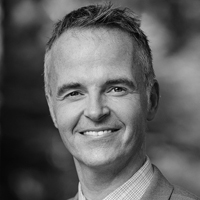by Dan Bureau, PhD
University of New Hampshire, ‘95
Board of Trustees
Assistant Vice President for Student Affairs at the University of Memphis
You call him brother.
You call him friend.
You look out for him when it comes to lots of things, but do you look out for his well-being? In particular, do you look out for his mental health?
It can be tricky to identify if someone you care about in the fraternity is experiencing a mental health problem. Particularly for men, there is so much pressure to appear to have it calm and together. Pressure to come across like things do not bother you. The reality is that very few people can manage this pressure well. As the pressure becomes too much, it may be an indicator that your brother has a problem with his mental health.
Now, feeling stressed is a natural thing. Stress is the body’s response to managing all that is going on and sometimes when too much is going on, you are going to feel tense, stressed, upset. So, having some stress is not a problem and could potentially be good for you.
But when stress does overwhelm someone and it goes unchecked, there is potential for a number of mental health concerns, including depression, anxiety, bipolar disorder, thinking problems, personality changes, problem behaviors (think overuse of alcohol or demonstrating a lack of concern or civility to others), and even suicide ideation. Student debt can also play a factor. The reality is that even with the very minimal differences in actual mental illness between men and women, men are far less inclined to seek help. This results in a number of issues for us in Phi Kappa Theta.
You call him brother.
You call him friend.
You look out for him when it comes to lots of things, but do you look out for his well-being?
In particular, do you look out for his mental health? If you don’t look out for his mental health, there’s a good chance you’ll miss an opportunity to be the best brother you can be.
Your obligation is to find the resources on your campus that can help. This may be having the Counseling Center conduct a stress management workshop for the chapter. It could be walking your brother over to the Counseling Center. Whatever it is, find out on your campus who you can turn to in order to address mental health in your chapter.
Phi Kappa Theta is launching a partnership with the JED Foundation. A number of other fraternities including Alpha Chi Rho, Alpha Epsilon Pi, Delta Upsilon, Pi Kappa Phi, Sigma Alpha Epsilon, and Sigma Chi have announced national partnerships with the JED Foundation. The JED Foundation’s website provides a number of resources that can be helpful in learning about mental health and mental illness. Check them out today! Look for a launch of the partnership between Phi Kappa Theta and the JED Foundation launched sometime by the end of this year. In the meantime, “seek him with hours to kill and reach out to him with hours to live”, can guide you. A meaningful statement within the ritual and an explanation for why looking out for your brother is so important to his well-being and yours.
About Dan:
Dan Bureau joined Phi Kappa Theta at the University of New Hampshire, and graduated in 1995. He later earned a PhD. in Higher Education and Student Affairs at Indiana University. Dan works for the University of Memphis as the assistant vice president for student affairs. He also volunteers for the Council for the Advancement of Standards through the Association of Fraternity/Sorority Advisors. Dan enjoys spending time with his family, playing tennis and staying fit.








